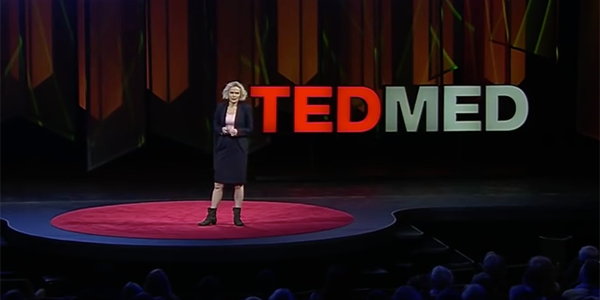Addiction Is Not A Moral Failure… It’s a Brain Disorder

For many years now, a social stigma has existed around addiction, whether to alcohol, illicit drugs, food or something else. The seriousness of these disorders has been widely viewed as the result of poor self-control and personal behavioral choices.
This perspective was hard for Dr. Nora Volkow to comprehend when her addicted patients told her that even though the drug they were taking was no longer pleasurable, they couldn’t stop taking it. Were people really willing to give up everything they cared for – family, friends, health and freedom – for something they perceived as rewarding due to their moral failures, or was a physiological disorder causing their addiction?
In this TEDMED talk, Dr. Volkow discusses how images of the human brain are providing insight into the role that the chemical dopamine plays in addiction.
Dopamine is the chemical in the brain that tell us something is rewarding or pleasurable, and it enables us to take action. For addicted individuals, simply seeing, hearing or smelling the reward – in this case alcohol, drugs or even food – produces sharp, short-lasting increases in dopamine. Dopamine D2 Receptors regulate the frontal lobe of our brain which gives us the ability to control strong urges and exhibit self-control. Repeated and frequent substance abuse leads to a reduction of these receptors, compromising our ability to control strong urges.
“Dismissal of addiction and obesity as just problems of self-control ignores the fact that for us to be able to exert self-control, we require the proper function of the areas in our brains that regulate our behaviors,” states Volkow.
The good news is that the brain can change, and it’s never too late for change to occur. The human brain is developing every second of every day, long into adulthood. It has the ability to grow stronger, learn how to solve complex problems and develop resiliency to bounce back after difficult situations.
We already have the tools to address the problems of addiction and obesity, but we need to commit more resources toward treatment and prevention. It will require creating infrastructure and environments that give all people better, healthier options.
In 2015, KVC was one of 15 U.S. and Canadian nonprofit organizations selected by the Alliance for Strong Families and Communities to participate in a new initiative called “Change in Mind: Applying Neurosciences to Revitalize Communities.” Over this three-year collaborative, the sites will work together using recent neuroscience research to influence practice, policy and public decisions. Learn more about the initiative and healthy brain development at www.kvc.org/brain.




